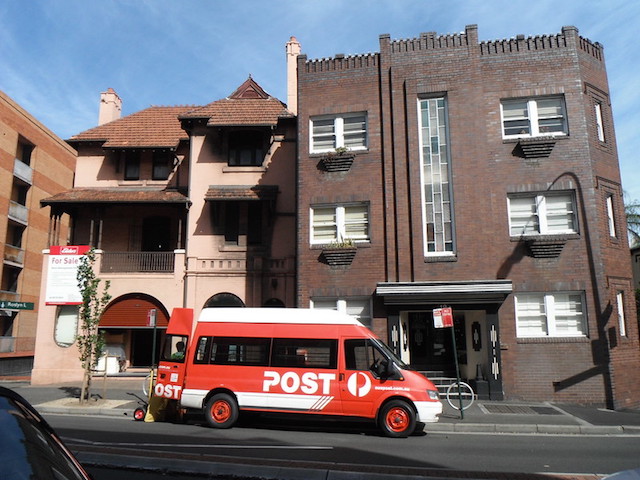Search Results: one of the few
Stronger Together
filed in Meaningful Work, Strategy

It’s the day before Melbourne cafes close again under reinstated lockdown restrictions. The owner of the Italian restaurant that opened in January is heart sore. We get chatting as I’m paying the bill. He explains that due to then pandemic they’ve been able to have patrons dine in for only nine of the twenty-four weeks they’ve been open. Most of his Italian staff have returned home, and he’s doing his best to support and keep his local team in work.
The business has transitioned to takeaway only and offers grocery boxes for delivery. What’s most impressive is how the owner is building customer loyalty while caring for his team during this difficult time. When the restrictions hit, he sat with each staff member to find out how many hours work they needed to pay their bills. The team members with second jobs worked less and offered extra hours to those who needed more.
Overwhelmingly what we’re seeing in these challenging times in the hospitality sector and beyond among both businesses and customers is a renewed sense of mutual appreciation.
Small businesses are doing everything they can to adapt and serve. And the community is doing what it can to sustain local businesses. If the past few months have reminded us of anything, it’s how dependent we are on each other. That symbiosis has the power to make us stronger.
We’re not just in this together. We’re better because we’re together.
Image by Zhanjiang Chen
To Whom It May Concern
filed in Marketing, Meaningful Work, Story Skills

When an aspiring author is pitching her work to a publisher or agent, she needs to address the agent directly.
In her query letter, it’s not enough to be aware of her book’s strengths—she must also know who it’s for and why this particular agent will care enough to read the first few chapters.
It doesn’t matter what idea you’re selling—it could be a logo, financial services or behaviour change, the same rules apply.
You’ll always get a better result when you open your pitch with the words, ‘Dear Someone Specific’ in your mind.
Act as if you’re writing a letter to a person you know, not a marketing message. Because you are.
Image by Green Chameleon
Imperceptible Growth
filed in Meaningful Work, Success

When our kids were young my husband and I charted their growth on a door frame. Every few months they’d stand next to the wall, and we’d mark their height with a pencil.
Some months it looked like they hadn’t grown at all. Other times it seemed like they’d shot up overnight. The truth was they were growing every day—just not always in ways that were immediately visible.
It’s the same for all of the progress we make. Sometimes we can see and measure it, and other times we feel like we’re stuck in place. But just because the things we can see with the naked eye aren’t trending upwards doesn’t mean we aren’t growing.
Often it’s the growth we can’t see that is the making of us.
Image by Charlein Garcia
The Way To Lead
filed in Meaningful Work, Strategy, Success

A few years back, my son was leaving the train station in Perth when someone asked him for directions. He began to explain the route but stopped halfway. ‘I’m going that direction, why don’t I take you there,’ he said, leading the way.
One of the best definitions of leadership I’ve read, explains that it’s the act of showing someone the way to a destination by going in front of or beside them.
That implies if we intend to lead, we not only need to know the destination but also who we’re leading and whether we’re committed enough to walk in front or beside them.
Leadership is a journey that we take the responsibility for making together.
Image by several seconds
Ideas Worth Keeping
filed in Meaningful Work, Strategy, Success

Sometimes our best ideas come to us when we’re working with constraints. We’ve all seen hundreds of brilliant ideas and initiatives come into being as a result of communities being in isolation around the globe.
Local councils in London are calling at-risk elderly to ask if they need groceries or medicines delivered.
Villages have started newsletters to keep communities informed and together.
Neighbours are dropping care packages at the doors of vulnerable neighbours.
Supermarkets have changed store layouts, putting essential items at the front to cut down on shopping time.
Legoland is hosting live workshops to inspire children who are now home-schooled.
What ideas, routines and rituals have you started in the past few weeks that are worth keeping?
Image by Kelly Sikkema
Helpful Conversations

Over the past few weeks, my inbox has filled with emails from organisations I’d forgotten I’d ever had contact with. I must have signed up to an email list or bought something from them many years ago, but it’s so far back, I can’t remember why.
We’re all still trying to work out how to be useful to the people we serve in this moment. We want to help.
But the thing to remember about helpful conversations is that timing matters. Being helpful is not just about what you say or how you say it, it’s also about when you say it.
That doesn’t mean we need to stop talking, but it might just mean we need to be twice as good at listening, especially now.
Image by Fezbot
Two Questions For Days Like These
filed in Meaningful Work, Worldview

Will we wake up in a few months and lament that we haven’t made more of this time in isolation?
The direct impact of current events is largely beyond our control. And yet it affects us indirectly, often in imperceptible ways. There are many things going on in the world that we can’t influence, but there is something we can do to minimise their indirect effects on our agency.
We have a choice.
We can allow time to trickle through our fingers as we refresh Twitter and binge-watch Netflix or we can do the things we’re glad to have done.
There are two questions we can ask ourselves at the end of each day.
What did I do today that I’m proud of?
What am I glad I did today?
We can mark time, without allowing this time to make its mark on us—and us on it.
Or we can try to do better each day.
Image by Edwin Hooper
Don’t Be Right, Be Early
filed in Strategy, Success, Worldview

Seven years ago, a member of the Zoom video conferencing sales team worked hard to demonstrate the value of their service to me.
She emailed, she Zoomed, she answered questions. And I didn’t sign up.
‘I will one day,’ I promised. ‘Just not now. It’s just too early for me.’
Which was true.
Few of us could have predicted the extraordinary growth trajectory of a company like Zoom seven years ago.
Nobody would have predicted that thousands of organisations, educational institutions and creatives, would now rely on Zoom to meet, teach and collaborate with colleagues and students in quarantine just seven weeks ago.
In tomorrow’s world, we will forget that Zoom built their business one call, one customer, at a time.
It’s impossible to be sure about our next move as we navigate the future.
It always has been.
Sometimes we have to take the first step without knowing whether it’s the right one.
We can’t always be right, but we can be early.
Image by Britanni Burns
The Myth Of The Gifted Storyteller
filed in Story Skills, Storytelling

Over and over again, we’ve heard people like Steve Jobs described as ‘a gifted storyteller’. We’ve come to believe that storytelling is an art reserved for the chosen few—that great storytellers are born, not made. How can that possibly be true?
What all great storytellers have in common is more than a talent for storytelling. They aren’t ‘naturals’ or ‘born storytellers’. What they are is ‘practised storytellers.’
Last weekend I was at an event where the legendary author Margaret Atwood spoke. When someone asked if she read fiction and why, she told the audience she reads to understand. ‘I want to know how they did that,’ she said. One of the best storytellers of our generation, a woman who has twice won the Booker Prize, whose books sell in their millions, reads other people’s stories to learn from them and make her stories better.
Storytelling is an act, something you practice—a skill you can learn and get better at.
*The Story Skills Workshop is back by popular demand. We open for registration on March 3rd. You can register for more information by visiting here.
Image by David Geller
Powering The Future

The tagline on the side of the red Australia Post van reads; ‘Powering online shopping.’
It stops me in my tracks. I think about the people who led this business twenty or even ten years ago. They would have had a hard time envisioning this as their new business strategy, never mind the world’s new reality.
While parcel revenues and online transactions are increasing, letter volumes keep dropping, which puts pressure on once thriving local post offices. Few people would have foreseen this two decades ago.
Like us, the leaders of this business must plan for the future without depending on it, by it’s getting closest to the people they want to serve.
Image by Ruby